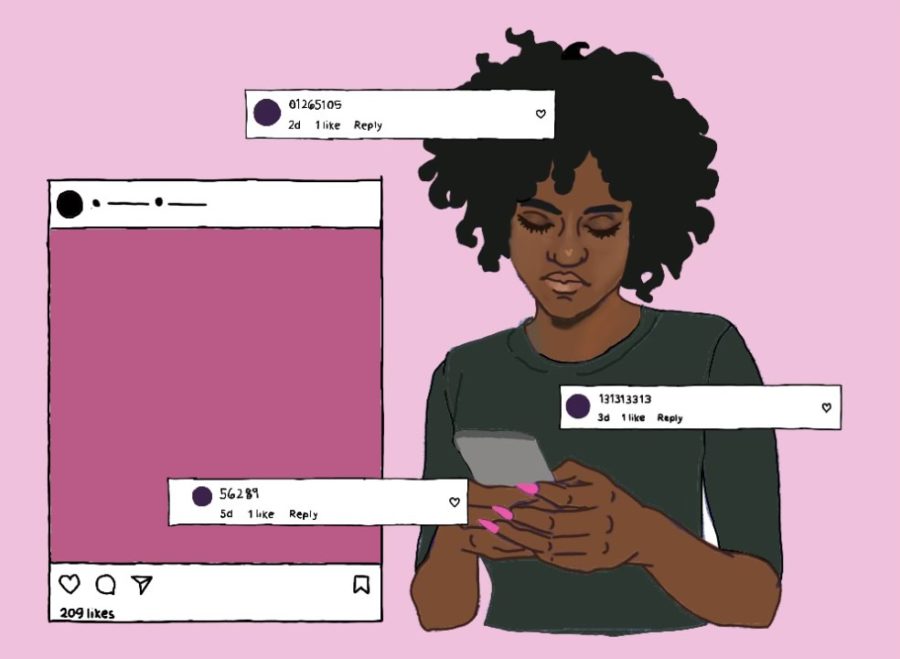Opinion | Cancel culture is just another form of appropriation
March 15, 2023
If you are a part of the Generation Z or keep up with the common social media apps—more specifically TikTok and Twitter—there is a high possibility that you have heard of the term “cancel culture.” According to the Merriam Webster dictionary, the phrase “cancel culture” is described as “the practice or tendency of engaging in mass canceling as a way of expressing disapproval and exerting social pressure.” While at first glance it may seem as though cancel culture would have more positive effects than negative—as it is based on the ideal of holding people accountable—it has become more harmful than helpful.
Whether it’s basketball player Kyrie Irving, TikTok star Sienna Mae or even the famous talk show host Ellen DeGeneres, everyone who has a social media presence is at risk of being “canceled,” and this new reality brings up many questions about how we pick and choose who must be “canceled.” Growing up within the climate of social advocacy such as the #MeToo movement, where assaulters such as Bill Cosby, Harvey Weinstein and Larry Nassar were held accountable for their heinous sexual crimes, the act of canceling is justifiable and important. . Yet, now that the phenomenon has made its way to apps that are geared towards young people (Tiktok, Instagram, etc.), it is evident that quite literally anyone can be “canceled”, no matter how grave (or not) their actions were. For instance, while scrolling throughTikTok on January 24th, 2023, my for you page was filled with videos proclaiming that the well-known makeup influencer, Mikayla Nogueira, had been “canceled.” Immediately I went searching to find out what horrible thing she must have said or done to be ostracized by the entirety of the Tiktok beauty community. After a quick search I found out that she was “canceled” because she had lied about having fake eyelashes on in a paid promotional video. I couldn’t help but wonder: how did we as a society transition from canceling rapists, white supremists and criminals, to canceling beauty influencers over eyelashes?
The answer to that question is clear: appropriation. When thinking about appropriation, we think of box braids, racist mascots, and authentic cultural practices becoming trends, but the cancel culture phenomenon is simply another manifestation of this. Grammy-winning musician and social activist Lizzo recently took to Twitter to share her thoughts on today’s cancel culture.
“This may be a random time to say this but it’s on my heart … cancel culture is appropriation,” Lizzo wrote.
This led to major support in her tweets with fans also sharing their agreement.
“You’ve reminded me of how white nationalists have appropriated ‘woke,’ to weaponize against the community that the expression hails from, as well,” shared NPR correspondent Ian Saint.
“They did the same thing with woke,” says user Jon Kung, agreeing with Saint.
This tweet has overall spread awareness over what cancel culture really means in popular culture. But how is cancel culture appropriation? And what is appropriation?
From our land and wealth to our dance and music, America is no stranger to stealing from Black Americans. Appropriation emerges from viewing marginalized groups’ culture as “trendy”, neglecting the rich, ancestral history of these traditions. But it doesn’t end with Miley Cyrus wearing grillz and Kim Kardashian getting box braids, it has manifested into stealing more than fashion trends – it’s stealing our struggle.
As we as a society continue on this track of living in our phones and the online world – we must remember that cancel culture is meant to hold folks accountable for contributing to systems of oppression, and nothing short of that. We’ve seen through inspiring journalists that cancel culture can contribute to change and work to stop the bigotry of our world from thriving. Yet, we cannot strip the value from the act of “canceling” by throwing it around lightly. We also must remember the people that put themselves and their safety in jeopardy to elucidate the truth, and learn from them and their social advocacy instead of making a mockery out of it. So the next time you begin to make that tweet or tik tok post that’s “canceling” someone, think of all of the brave women that told the world their horrifying stories about R. Kelly, or the journalist Meghan Twohey who put her safety in jeopardy to give the victims of Harvey Weinstein the justice that they deserve, and remember all of the courageous people who have contributed to change by canceling someone and question whether what you are doing is helping a movement – or stripping cancel culture of the value that it deserves.








